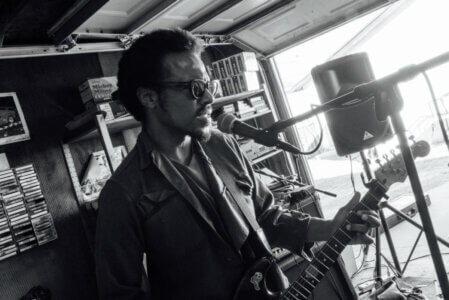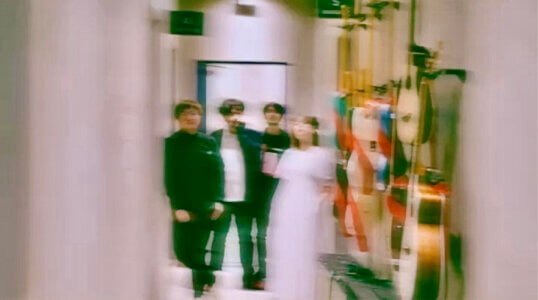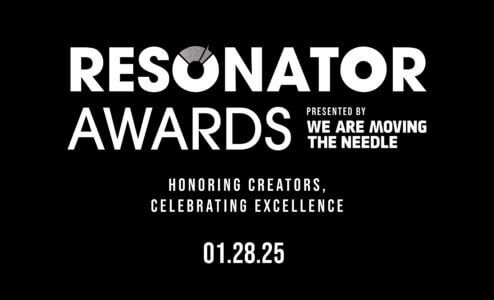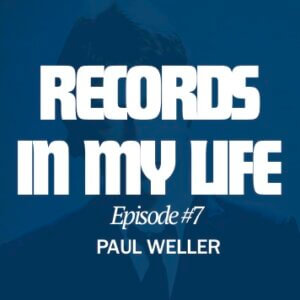Ravens and Chimes Interview
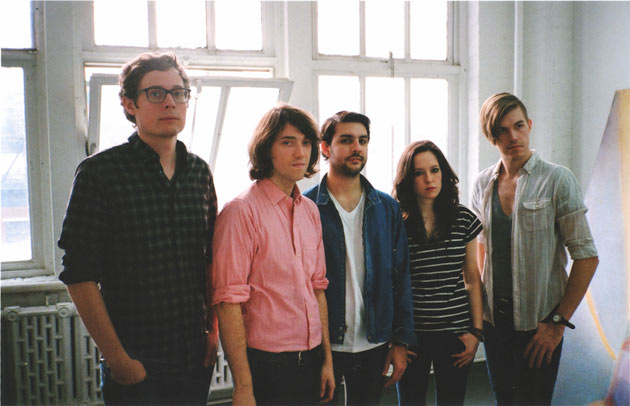
Here’s Charles Brownstein chatting with Asher from Ravens and Chimes a bit about that great town Montreal and that other one New York City, with a few other subjects thrown in.
CB: You worked with Producer Howard Billerman on the new album ‘Holiday Life’, he also worked on the your last record. Do you feel he really get’s the best out of you muscly in the studio?
AL: On the first album Howard taught us a lot about how to make a record that was emotionally in the place it needed to be as well as sonically. Howard cares about capturing the sentiment behind a song as much as getting a good take. That’s why we went back to him with this album. He brought on Larry Crane in as well to polish out some of the rougher edges that we let slide the last time. Larry wants things to be played precisely from the drums up and made sure that we had everything as tight as it needed to be.
CB: Were you quite excited to hear that both Jeff Mangum and Leonard Cohen were into ‘Reichenbach Falls’?
AL: Leonard Cohen is one of my biggest heros. As a musician, a writer, and a poet he has a body of work that represents so many of the reasons I started doing art in the first place. To hear that he enjoyed what we do as a band was one of the most special things I could have wished for.
I met Jeff Mangum in New York a few times and before I properly introduced myself to him he knew about me, and the band, and that we were working on an album that was taking a long time. His music really inspired me to think outside of the box in terms of what you can use an instrument to do and challenging a lot of sonic ideas. I hope he likes our music. I’m not really sure what he thinks of it.
CB: Is writing the sophomore record really tough for a band?
AL: The hardest thing about doing this album was coming to terms with the amount of work it takes to accomplish anything worthwhile. The first album was so easy to get out into the world that none of us were really ready for the amount of sacrifice it takes to continue being a musician (especially with the current state of the business). That lead to a lot of in-fighting which got in the way of the writing process. Once all of those that was past the songs came pouring out and over the course of two or three month period the writing came together.
CB: How did you guys get involved with the ‘Twilight Saga’ soundtrack?
AL: There was an open call for submissions that was sent to our label. The got in touch and asked if we had anything that might work, and I had a half done version of the song “Carousel”. I rushed to finish it and we did a raw demo but it wasn’t really ready in time and we were up against some big stuff. That ended up being the song that brought me back to the writing table. When I finished writing that I knew that I still had things to say.
CB: I have asked other bands about New York City before, how much influence does the city’s environment and landscape have on the music?
AL: Having grown up in New York for pretty much my whole life I’ve seen it change from a wild dangerous place to the thing that it is now. I don’t like some things about it, but it’s cool that there are a lot of bands around now. When I was a teenager (the mid to late 90’s) there wasn’t a lot of cool music happening here.
It’s hard for me to not set a lot of songs here because it’s been the backdrop to so much of my experience. The song Division St. deals with a lot of my feelings toward how New York has changed since I was a kid.
CB: There are also strong Montreal connections, your cover of Leonard Cohen’s ‘So Long, Marianne’ and recording both albums at Hotel2tango.
AL: My parents and brother are all Canadians. My father is from Montreal and my mother and brother all lived there for years. We always used to go to Montreal to visit family when I was a kid so when the music and art scene there started blowing up around 2003 I thought it was a really great place to get good work done. As for Leonard Cohen, I think he’s someone that all Canadians hold in very high regard, so I grew up with a lot of his music around.
CB: What do you think is driving the popularity of more folkier sounding music these days?
AL: I hope that it has something to do with song-writing being stripped down to it’s barest essentials and people wanting to hear good writing. That said I think the music that has most moved me lately has been stuff that uses methods totally foreign to me. I would love to watch the guy from Washed Out put together a song and see what goes into his process.
CB: Can you tell me five albums which have had a big influence on you?
AL: Black 47 “The Fire Of Freedom”: I had this on cassette in my parents car when I was little. I’m not sure if I would still like it but it captured what New York was like in the early 90’s so perfectly.
Leonard Cohen “Songs Of Leonard Cohen” and “Songs From a Room”: I got these two albums at the same time so they always mix together for me. In terms of songwriting and lyrical depth I don’t think you can do much better that this. His writing is as good as it gets for me.
Weezer “Pinkerton”: There’s something about the way the lyrics and the production on this both let it
all hang out that was very inspiring. The idea that a record could be relevant without being elegant was
really cool for me.
Neutral Milk Hotel “On Avery Island”: I played sax in marching band as a kid and took piano lessons,
but I really didn’t understand how to work non guitar, bass, and drums instrumentation into the music I
was doing until I heard this album. This opened me up in a lot of ways that I think I’m still benefitting
from.
Wolf Parade “6 song demo EP”: I got a hand made CDR of this at Cheap Thrills in Montreal in 2004.
It was so cool to hear a band use synth in such an organic and punk way. It felt like it was recorded in
some mad max post destroyed future.
ravensandchimes.com
www.myspace.com/ravensandchimes
www.betterlookingrecords.com
Latest Reviews
Trending
Tracks
Related
Advertisement
Looking for something new to listen to?
Sign up to our all-new newsletter for top-notch reviews, news, videos and playlists.





